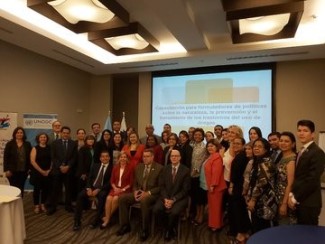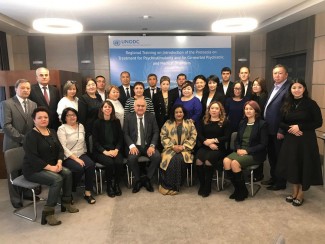COVID-19 Prévention, traitement, soins et soutien du VIH pour les personnes qui consomment des drogues et des personnes incarcérées


Established in 1997 through a merger between the United Nations Drug Control Programme and the Centre for International Crime Prevention, UNODC is mandated to assist Member States in addressing the issues of drugs, crime and terrorism. Working in cooperation with our partners and through our network of field offices, UNODC helps Member States facing urgent problems including smuggling of migrants and trafficking in persons, wildlife crime, maritime crime, cybercrime and trafficking in illicit drugs, firearms and cultural property. Further, UNODC seeks to combat corruption, reinforce efforts to prevent and counter terrorism, and enhance alternative development and access to controlled substances for medical purposes, promote evidence-based approaches to drug use prevention, treatment and rehabilitation, as well as HIV and AIDS. The Office has a strong collaboration with the World Health Organization (WHO) and the Joint United Nations Programme on HIV/AIDS (UNAIDS) to reinforce the need to put public health at the core of all responses to the world drug problem.
The three pillars of the UNODC work programme are:

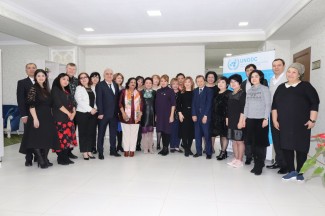
Conférencier : Wadih Maalouf, expert et gestionnaire de programme de l’Office des Nations Unies contre la drogue et le crime.
La conférence sera diffusée en direct sur https://canal.uib.eu/
S’il vous plaît bien confirmer la présence par e-mail: gifesuib [at] gmail [dot] com
Vendredi 07/02/2020 à 12h
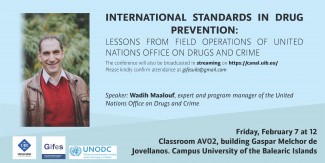
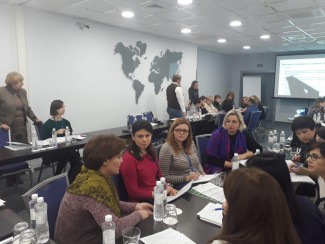
La 63e session de la Commission des stupéfiants des Nations Unies aura lieu à Vienne, en Autriche, du 2 au 6 mars 2020.
L’événement implique l’organe d’élaboration des politiques de l’Organisation des Nations Unies qui a la responsabilité première dans les questions liées à la drogue.

